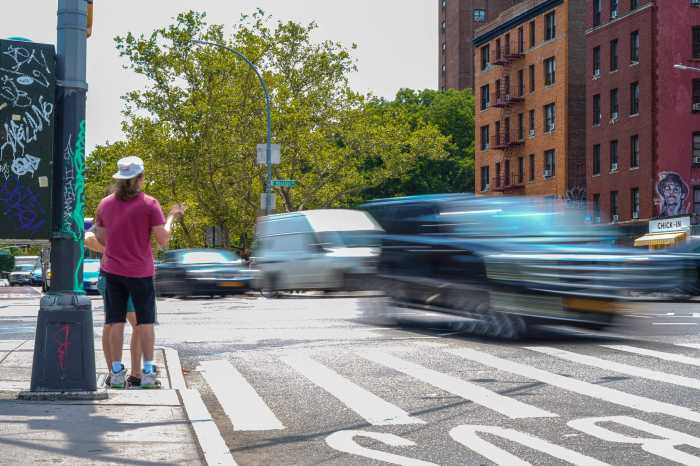By Bob Harris
Last month at the Queens County Farm Museum, the Queens Civic Congress hosted a debate on the issue of closing Rikers Island. Supporters spoke for closing it, while opponents were for keeping it open.
The issue is the small city on Rikers Island which houses several buildings for different detainees and several buildings that provide services, including a bakery for 9,000 prisoners segregated into different buildings. Councilman Rory Lancman said it costs $200,000 to keep a prisoner there for one year, if they stay that long.
There is the complaint that there is too much violence at the facility. Then there is the complaint that too many prisoners cannot afford bail. Opposing this argument was James Quinn, a senior prosecutor for District Attorney Richard Brown, who provided statistics showing that most of the prisoners were remanded by judges without bail for various reasons, and that only 3,000 of the 9,000 were eligible for bail.
It was mentioned that the high violence rate has only been reported in recent years. Could this higher violence level be due to an increase in the number of violent gang members being held for trial? It seems that if smaller facilities were built in the five boroughs, these same violent gang members would still be present.
The tentative plan is to use existing facilities, or build new ones, in the five boroughs, probably near the courts. The old jail in Queens was closed several years ago. Panel member and Councilwoman Karen Koslowitz (D-Forest Hills) commented that when there was a detention facility in her district no one knew it was there. It is now closed.
Correction Officers’ Benevolent Association President Elias Husamudeen spoke for keeping the facility open, and received a great deal of applause from the civic leaders present. He commented that the detention facility on Atlantic Avenue, near the courts, has as much violence as Rikers.
The city would have to find some way to reduce the number of prisoners so there would be a reasonable number in any local community facilities.
If the number could be reduced on Rikers, then the administration of the facility should be able to reduce crowding and the violence that goes with crowding. On the other hand, good administrators should be able to keep things under control the way things are.
Currently, the city is decriminalizing some quality-of-life offenses — such as urinating in public, turn-style jumping, and drinking in public — as a way to keep some people from getting caught, not being able to post bail, and landing in Rikers. There are two sides to the issue.
If Rikers is broken up, then any new facilities might not have room for services to the detainees and local store fronts or buildings might have to be used. This would impact on the community and scare many senior citizens. On the other hand, if defendants were housed next to the courts, then the cost of moving them to and from court hearings would be lower.
Another issue is services for people being held at Rikers. Is there adequate drug services, educational help, psychological counseling and job training? Also, if the city would provide adequate services to local neighborhoods — such as job training and school services — then some of the people at Rikers might never end up there in the first place. As they say, “an ounce of prevention …”
Then, there is the rumor floating around that developers might want the prime land called Rikers Island for development of some sort. What could be built there that could make developers a lot of money?


































